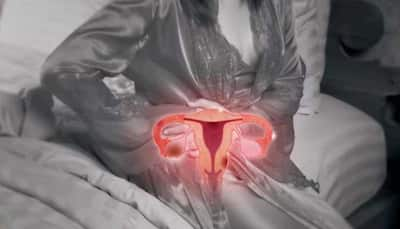A disease is often more than what we can see. Endometriosis is one such condition. It not only causes excruciating physical pain but also takes a toll on mental well-being, a reality not known by many, as this chronic gynaecological disorder remains unseen and misunderstood.
Dr. B. Ramesh, Consultant Gynae Endoscopic Surgeon, Infertility, ART Specialist & Urogynaecologist., Altius Sripada Hospitals LLP, Bengaluru shares the link between endometriosis and mental health.
Endometriosis occurs when some tissue similar to the lining of the uterus grows outside the womb, leading to inflammation, scarring, and debilitating pain, especially during menstruation. It affects 10–15% of all women of reproductive age worldwide. Yet, its impact extends far beyond the realm of physical discomfort, significantly impacting mental health and quality of life.
The impact of Endometriosis on mental health
Even today, emotional well-being and mental health are often overlooked as individual topics, let alone their association with Endometriosis. The chronic nature of the condition, coupled with its unpredictable symptoms and potential for fertility issues, can take a significant toll on mental well-being.
Women with Endometriosis often experience feelings of frustration, helplessness, and isolation as they struggle to cope with the pain and uncertainty of their condition. Some studies show that around 14.5% to 87.5% of women with endometriosis experience symptoms of anxiety, depression, and other psychiatric disorders.
Anxiety and depression are common companions, with study showing that women with Endometriosis are at a higher risk of developing these mental health disorders compared to the general population. The impact of Endometriosis on mental health can also extend to relationships, work, and daily functioning, further exacerbating the burden on those affected.
Risk factors and symptoms
Endometriosis can manifest differently in each individual, making it challenging to diagnose and manage effectively. However, several risk factors and common symptoms can signal the presence of the condition.
Risk factors include a family history of Endometriosis, early onset of menstruation, and prolonged menstrual cycles.
Symptoms may vary but often include chronic pelvic pain, Dysmenorrhea (pelvic pain associated with menstrual flow), deep dyspareunia ( pelvic pain during deep sexual penetration), or bowel movements, as well as heavy menstrual bleeding, infertility, and gastrointestinal issues such as bloating and constipation. Fatigue, mood swings, and difficulty concentrating are common symptoms that can significantly impact quality of life.
Prevention and treatment
While there is no known cure for Endometriosis, several preventive measures and treatment options can help manage symptoms and improve quality of life. Treatment centrally focuses on early diagnoses as there’s a huge gap between diagnosis and the onset of treatment. Individuals must work closely with their healthcare providers to develop a personalised treatment plan tailored to their specific needs and goals.
Once Endometriosis is rightly diagnosed, addressing mental health should also be taken into consideration.
Management of mental health with Endometriosis
Hormonal and surgical treatments for Endometriosis can improve symptoms but may impact mental health. Some treatments can lead to anxiety and depression. This underlines the importance of considering mental health when choosing treatments.
Managing mental health with Endometriosis means looking at both physical and emotional aspects. Support groups and self-care practices, like relaxation techniques, can be helpful. Prioritising mental health and seeking support can lead to fulfilling lives despite endometriosis challenges. By addressing both physical and emotional needs, we can lessen the impact of Endometriosis on mental health and promote well-being.
Additionally, on an individual level, it’s important to communicate and create a supportive and safe environment for women with Endometriosis. Acknowledging their challenges and encouraging them to seek help fosters confidence and resilience, breaking down stigmas and empowering them on their journey.
Endometriosis is more than just a physical condition; it’s a complex interplay of biological, psychological, and social factors. Women who suspect symptoms should seek help from their doctors at the earliest. The close family and friends should recognize the agony and be supportive rather than stigmatising the condition. After all, it is a medical condition affecting the life of the woman.
Stay informed on all the , real-time updates, and follow all the important headlines in and on Zee News.











